by Joanne Ivancic* (Advanced Biofuels USA) 1) We are no longer living in an all-hydrocarbon fuel world. 2) If there’s water involved, the ethanol stays with the water. 3) AR-AFFF is the only firefighting foam that can successfully extinguish an ethanol fire or suppress flammable vapors. 4) When firefighters are monitoring for flammable vapors at an incident site they use multi-gas detecting equipment capable of reading both hydrocarbons and ethanol vapors. 5) Laminate! These are five key points made by Joel Hendelman in the TRANSCAER/Renewable Fuels Association ethanol safety training that more succinctly would be summarized in just two words, “be prepared.”
With some attention to social distancing and wearing masks when away from the training room, day-long in-person training was offered three times in Maryland this week at the Frederick County Public Safety Training Center.
Designed for hazmat technician/specialists, first responders, individuals who will respond to ethanol-related emergencies, those who work at fixed-facilities and transport fuel the course is also open to anyone interested to learn more about the topic.
The presentation included a mix of basic introductory information about ethanol and ethanol-blended fuels along with more advanced training on challenges and techniques for fighting fires involving ethanol blend fuels.
The materials are available at no cost for self-directed learning and include teachers’ manuals.
That said, there’s substantial value in having in-person training with an instructor who not only brings decades of experience, but who can help put the information into the specific context of each attendee’s situation and respond to ideas and questions from a deep well of knowledge partly gleaned from conducting trainings around the country, sharing experiences and best practices from other participants. Hendelman fits this description. As National Contracted Instructor for the Renewable Fuels Association (RFA) and TRANSCAER, a co-supporter/sponsor of this national program along with other grant funding streams, he has been bringing this training to all corners of the US since 2014.
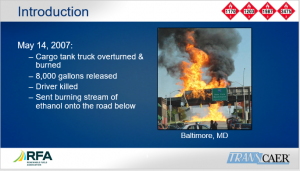 2006 ethanol tank truck fire in Baltimore, an example of how ethanol fuel fires can occur anywhere and case study on fire fighting decision-making.
2006 ethanol tank truck fire in Baltimore, an example of how ethanol fuel fires can occur anywhere and case study on fire fighting decision-making.
- We are no longer living in an all-hydrocarbon fuel world.
Over 16 billion gallons of ethanol is transported across our country by railroad tank cars, highway cargo tank trucks, freighter ships/ barges and pipeline each year. Ethanol blended fuels are some of the top hazardous materials shipped by rail today. No matter where you live in the US, ethanol fuels are part of your life. It’s hard to find a gas station that sells anything less than a 10% ethanol/gasoline blend (E10); many have E15 or E85.
And since little ethanol sees the inside of a pipeline, any fire department along those ways should be prepared for a potential accident. Their roads, rails and waterways carry both the denatured fuel ethanol (composed of 95-98% ethanol with 2% - 5% gasoline to make it undrinkable) on the way to transfer terminals for blending as well as the blended fuels on their way to local filling stations. They should identify likely geographical locations of problems based on past 30-40 years of historical experiences along with identifying new and developing situations, such as new gas stations, traffic patterns and industrial or agricultural considerations.
Part of mutual assistance agreements might include sharing of information about pre-planning with all whom may be called on for help.
- If there’s water involved, the ethanol stays with the water.
Any bartender will tell you that ethanol and water have great affinity for each other. It’s why cocktails mix so well. And, chefs who know how to flambé food such as bananas foster or cherries jubilee, add ethanol to a hot pan to create a burst of flames.
Great stuff. It makes clear that these two properties require special attention when fighting an ethanol blend fuel fire. First responders need to know what to do to extinguish the fire and to protect life and property.
- AR-AFFF is the only firefighting foam that can successfully extinguish an ethanol fire.
Firefighting foams developed for fighting all-hydrocarbon fuel fires work by a small percent (3%) of foam concentrate getting mixed with water (97%) going through the firefighting hoselines and specialized foam nozzles. With ethanol fuels, the hydrocarbon part of the fire may be extinguished, but the water in the foam joins with the ethanol and unless the water is 500% more than the amount of ethanol, the mixture will continue to burn.
Ethanol is a very clean-burning fuel. Lack of smoke and a faint flame makes it difficult for firefighters to see. So, special foam (AR-AFFF) has been developed that creates a gelatinous polymeric membrane barrier between the ethanol and the water-based foam that extinguishes the fire and/or suppresses the vapors. It is also works to extinguish other hydrocarbon fires.
- When firefighters are monitoring for flammable vapors at an incident site they use multi-gas detecting equipment capable of reading both hydrocarbons and ethanol vapors.
Firefighters and hazardous materials specialists use special instruments to monitor fires for toxic chemicals or the release of flammable vapors. They are triggered by both ethanol and the hydrocarbon and the use of mathematical conversion factors to specifically identify if the ethanol or hydrocarbon vapors present are within their explosive range. Because of the chemical properties of ethanol, decisions made regarding how best to fight a particular ethanol blended fuel fire might be determined by its actual presence.
- Laminate!
Laminate is just one aspect of the overall necessity to “be prepared.” Tools such as a tactical worksheet are used as part of the process to determine if foam should be used at this incident and a reminder card about various (and inconsistent) coding systems that identify hazardous materials were suggested best mitigation practices can then be applied.
Collaborate
If there was one other key point Hendelman made, it was the importance of collaboration, certainly as part of any mutual assistance agreements with other jurisdictions; but also as a way to secure accessible resources such as foam concentrate, firefighting equipment, accessible storage, support for training, etc.
Highly Relevant
Frederick County, as home of Fort Detrick, including the United States Army Medical Research Institute of Infectious Diseases with its intensive work on infectious diseases and bioweapons, may see itself as more vulnerable to many other potential disasters than ethanol fuel fires. But these sessions make clear to all attendees that ethanol fuel blends are everywhere.
So, in addition to these unique circumstances, with a main rail line and major highways going through Frederick City and County, and with agricultural use and storage of fuels in the area, it behooves all area fire departments to “be prepared” for any kind of chemical fire incident, including those with ethanol blended fuels. Attending the sessions pictured were representatives from Fort Detrick, Frederick City and Frederick County fire houses as well as from Montgomery County.
The same holds true for any other fire safety department anywhere. These sessions provide a clear way to understand these new chemicals, changing fuels in a changed world.
*Joanne Ivancic serves as executive director of Advanced Biofuels USA. (Photos by JIvancic unless otherwise noted; screen shots from RFA/TRANSCAER materials)
Nearly 55,000 articles in our online library!
Use the categories and tags listed below to access the nearly 50,000 articles indexed on this website.
Advanced Biofuels USA Policy Statements and Handouts!
- For Kids: Carbon Cycle Puzzle Page
- Why Ethanol? Why E85?
- Just A Minute 3-5 Minute Educational Videos
- 30/30 Online Presentations
- “Disappearing” Carbon Tax for Non-Renewable Fuels
- What’s the Difference between Biodiesel and Renewable (Green) Diesel? 2020 revision
- How to De-Fossilize Your Fleet: Suggestions for Fleet Managers Working on Sustainability Programs
- New Engine Technologies Could Produce Similar Mileage for All Ethanol Fuel Mixtures
- Action Plan for a Sustainable Advanced Biofuel Economy
- The Interaction of the Clean Air Act, California’s CAA Waiver, Corporate Average Fuel Economy Standards, Renewable Fuel Standards and California’s Low Carbon Fuel Standard
- Latest Data on Fuel Mileage and GHG Benefits of E30
- What Can I Do?
Donate
DonateARCHIVES
- February 2026
- January 2026
- December 2025
- November 2025
- October 2025
- September 2025
- August 2025
- July 2025
- June 2025
- May 2025
- April 2025
- March 2025
- February 2025
- January 2025
- December 2024
- November 2024
- October 2024
- September 2024
- August 2024
- July 2024
- June 2024
- May 2024
- April 2024
- March 2024
- February 2024
- January 2024
- December 2023
- November 2023
- October 2023
- September 2023
- August 2023
- July 2023
- June 2023
- May 2023
- April 2023
- March 2023
- February 2023
- January 2023
- December 2022
- November 2022
- October 2022
- September 2022
- August 2022
- July 2022
- June 2022
- May 2022
- April 2022
- March 2022
- February 2022
- January 2022
- December 2021
- November 2021
- October 2021
- September 2021
- August 2021
- July 2021
- June 2021
- May 2021
- April 2021
- March 2021
- February 2021
- January 2021
- December 2020
- November 2020
- October 2020
- September 2020
- August 2020
- July 2020
- June 2020
- May 2020
- April 2020
- March 2020
- February 2020
- January 2020
- December 2019
- November 2019
- October 2019
- September 2019
- August 2019
- July 2019
- June 2019
- May 2019
- April 2019
- March 2019
- February 2019
- January 2019
- December 2018
- November 2018
- October 2018
- September 2018
- August 2018
- July 2018
- June 2018
- May 2018
- April 2018
- March 2018
- February 2018
- January 2018
- December 2017
- November 2017
- October 2017
- September 2017
- August 2017
- July 2017
- June 2017
- May 2017
- April 2017
- March 2017
- February 2017
- January 2017
- December 2016
- November 2016
- October 2016
- September 2016
- August 2016
- July 2016
- June 2016
- May 2016
- April 2016
- March 2016
- February 2016
- January 2016
- December 2015
- November 2015
- October 2015
- September 2015
- August 2015
- July 2015
- June 2015
- May 2015
- April 2015
- March 2015
- February 2015
- January 2015
- December 2014
- November 2014
- October 2014
- September 2014
- August 2014
- July 2014
- June 2014
- May 2014
- April 2014
- March 2014
- February 2014
- January 2014
- December 2013
- November 2013
- October 2013
- September 2013
- August 2013
- July 2013
- June 2013
- May 2013
- April 2013
- March 2013
- February 2013
- January 2013
- December 2012
- November 2012
- October 2012
- September 2012
- August 2012
- July 2012
- June 2012
- May 2012
- April 2012
- March 2012
- February 2012
- January 2012
- December 2011
- November 2011
- October 2011
- September 2011
- August 2011
- July 2011
- June 2011
- May 2011
- April 2011
- March 2011
- February 2011
- January 2011
- December 2010
- November 2010
- October 2010
- September 2010
- August 2010
- July 2010
- June 2010
- May 2010
- April 2010
- March 2010
- February 2010
- January 2010
- December 2009
- November 2009
- October 2009
- September 2009
- August 2009
- July 2009
- June 2009
- May 2009
- April 2009
- March 2009
- February 2009
- January 2009
- December 2008
- November 2008
- October 2008
- September 2008
- August 2008
- July 2008
- June 2008
- May 2008
- April 2008
- March 2008
- February 2008
- January 2008
- December 2007
- November 2007
- October 2007
- September 2007
- August 2007
- June 2007
- February 2007
- January 2007
- October 2006
- April 2006
- January 2006
- April 2005
- December 2004
- November 2004
- December 1987
CATEGORIES
- About Us
- Advanced Biofuels Call to Action
- Aviation Fuel/Sustainable Aviation Fuel (SAF)
- BioChemicals/Renewable Chemicals
- BioRefineries/Renewable Fuel Production
- Business News/Analysis
- Cooking Fuel
- Education
- 30/30 Online Presentations
- Competitions, Contests
- Earth Day 2021
- Earth Day 2022
- Earth Day 2023
- Earth Day 2024
- Earth Day 2025
- Executive Training
- Featured Study Programs
- Instagram TikTok Short Videos
- Internships
- Just a Minute
- K-12 Activities
- Mechanics training
- Online Courses
- Podcasts
- Scholarships/Fellowships
- Teacher Resources
- Technical Training
- Technician Training
- University/College Programs
- Events
- Coming Events
- Completed Events
- More Coming Events
- Requests for Speakers, Presentations, Posters
- Requests for Speakers, Presentations, Posters Completed
- Webinars/Online
- Webinars/Online Completed; often available on-demand
- Federal Agency/Executive Branch
- Agency for International Development (USAID)
- Agriculture (USDA)
- Commerce Department
- Commodity Futures Trading Commission
- Congressional Budget Office
- Defense (DOD)
- Air Force
- Army
- DARPA (Defense Advance Research Projects Agency)
- Defense Logistics Agency
- Marines
- Navy
- Education Department
- Energy (DOE)
- Environmental Protection Agency
- Federal Energy Regulatory Commission (FERC)
- Federal Reserve System
- Federal Trade Commission
- Food and Drug Administration
- General Services Administration
- Government Accountability Office (GAO)
- Health and Human Services (HHS)
- Homeland Security
- Housing and Urban Development (HUD)
- Interior Department
- International Trade Commission
- Joint Office of Energy and Transportation
- Justice (DOJ)
- Labor Department
- National Academies of Sciences Engineering Medicine
- National Aeronautics and Space Administration
- National Oceanic and Atmospheric Administration
- National Research Council
- National Science Foundation
- National Transportation Safety Board (NTSB)
- Occupational Safety and Health Administration
- Overseas Private Investment Corporation
- Patent and Trademark Office
- Securities and Exchange Commission
- State Department
- Surface Transportation Board
- Transportation (DOT)
- Federal Aviation Administration
- National Highway Traffic Safety Administration (NHTSA)
- Pipeline and Hazardous Materials Safety Admin (PHMSA)
- Treasury Department
- U.S. Trade Representative (USTR)
- White House
- Federal Legislation
- Federal Litigation
- Federal Regulation
- Feedstocks
- Agriculture/Food Processing Residues nonfield crop
- Alcohol/Ethanol/Isobutanol
- Algae/Other Aquatic Organisms/Seaweed
- Atmosphere
- Carbon Dioxide (CO2)
- Field/Orchard/Plantation Crops/Residues
- Forestry/Wood/Residues/Waste
- hydrogen
- Manure
- Methane/Biogas
- methanol/bio-/renewable methanol
- Not Agriculture
- RFNBO (Renewable Fuels of Non-Biological Origin)
- Seawater
- Sugars
- water
- Funding/Financing/Investing
- grants
- Green Jobs
- Green Racing
- Health Concerns/Benefits
- Heating Oil/Fuel
- History of Advanced Biofuels
- Infrastructure
- Aggregation
- Biofuels Engine Design
- Biorefinery/Fuel Production Infrastructure
- Carbon Capture/Storage/Use
- certification
- Deliver Dispense
- Farming/Growing
- Precursors/Biointermediates
- Preprocessing
- Pretreatment
- Terminals Transport Pipelines
- International
- Abu Dhabi
- Afghanistan
- Africa
- Albania
- Algeria
- Angola
- Antarctica
- Arctic
- Argentina
- Armenia
- Aruba
- Asia
- Asia Pacific
- Australia
- Austria
- Azerbaijan
- Bahamas
- Bahrain
- Bangladesh
- Barbados
- Belarus
- Belgium
- Belize
- Benin
- Bermuda
- Bhutan
- Bolivia
- Bosnia and Herzegovina
- Botswana
- Brazil
- Brunei
- Bulgaria
- Burkina Faso
- Burundi
- Cambodia
- Cameroon
- Canada
- Canary Islands
- Caribbean
- Central African Republic
- Central America
- Chad
- Chile
- China
- Colombia
- Congo
- Congo, Democratic Republic of
- Costa Rica
- Croatia
- Cuba
- Cyprus
- Czech Republic
- Denmark
- Dominican Republic
- Dubai
- Ecuador
- Egypt
- El Salvador
- Equatorial Guinea
- Estonia
- Eswatini/Swaziland
- Ethiopia
- European Union (EU)
- Fiji
- Finland
- France
- French Guiana
- Gabon
- Georgia
- Germany
- Ghana
- Global South
- Greece
- Greenland
- Grenada
- Guatemala
- Guinea
- Guyana
- Haiti
- Honduras
- Hong Kong
- Hungary
- Iceland
- India
- Indonesia
- Iran
- Iraq
- Ireland
- Israel
- Italy
- Ivory Coast
- Jamaica
- Japan
- Jersey
- Jordan
- Kazakhstan
- Kenya
- Korea
- Kosovo
- Kuwait
- Laos
- Latin America
- Latvia
- Lebanon
- Liberia
- Lithuania
- Luxembourg
- Macedonia
- Madagascar
- Malawi
- Malaysia
- Maldives
- Mali
- Malta
- Marshall Islands
- Mauritania
- Mauritius
- Mexico
- Middle East
- Moldova
- Monaco
- Mongolia
- Morocco
- Mozambique
- Myanmar/Burma
- Namibia
- Nepal
- Netherlands
- New Guinea
- New Zealand
- Nicaragua
- Niger
- Nigeria
- North Africa
- North America
- North Korea
- Northern Ireland
- Norway
- Oman
- Pakistan
- Panama
- Papua New Guinea
- Paraguay
- Peru
- Philippines
- Poland
- Portugal
- Qatar
- Republic of
- Romania
- Russia
- Rwanda
- Saudi Arabia
- Scotland
- Senegal
- Serbia
- Sierra Leone
- Singapore
- Slovakia/Slovak Republic
- Slovenia
- Solomon Islands
- South Africa
- South America
- South Korea (Republic of Korea)
- South Sudan
- Southeast Asia
- Spain
- Sri Lanka
- Sudan
- Suriname
- Sweden
- Switzerland
- Taiwan
- Tanzania
- Thailand
- Timor-Leste
- Togo
- Trinidad and Tobago
- Tunisia
- Turkey
- Uganda
- UK (United Kingdom)
- Ukraine
- United Arab Emirates UAE
- Uruguay
- Uzbekistan
- Vatican
- Venezuela
- Vietnam
- Wales
- Zambia
- Zanzibar
- Zimbabwe
- Marine/Boat Bio and Renewable Fuel/MGO/MDO/SMF
- Marketing/Market Forces and Sales
- Opinions
- Organizations
- Original Writing, Opinions Advanced Biofuels USA
- Policy
- Presentations
- Biofuels Digest Conferences
- DOE Conferences
- Bioeconomy 2017
- Bioenergy2015
- Biomass2008
- Biomass2009
- Biomass2010
- Biomass2011
- Biomass2012
- Biomass2013
- Biomass2014
- DOE Project Peer Review
- Other Conferences/Events
- R & D Focus
- Carbon Capture/Storage/Use
- Co-Products
- Feedstock
- Logistics
- Performance
- Process
- Vehicle/Engine/Motor/Aircraft/Boiler/Ship
- Yeast
- Railroad/Train/Locomotive Fuel
- Resources
- Books Web Sites etc
- Business
- Definition of Advanced Biofuels
- Find Stuff
- Government Resources
- Scientific Resources
- Technical Resources
- Tools/Decision-Making
- Rocket/Missile Fuel
- Sponsors
- States
- Alabama
- Alaska
- Arizona
- Arkansas
- California
- Colorado
- Connecticut
- Delaware
- Florida
- Georgia
- Hawai'i
- Idaho
- Illinois
- Indiana
- Iowa
- Kansas
- Kentucky
- Louisiana
- Maine
- Maryland
- Massachusetts
- Michigan
- Midwest
- Minnesota
- Mississippi
- Missouri
- Montana
- Native American tribal nation lands
- Nebraska
- Nevada
- New Hampshire
- New Jersey
- New Mexico
- New York
- North Carolina
- North Dakota
- Ohio
- Oklahoma
- Oregon
- Pennsylvania
- Puerto Rico
- Rhode Island
- South Carolina
- South Dakota
- Tennessee
- Texas
- Utah
- Vermont
- Virginia
- Washington
- Washington DC
- West Coast
- West Virginia
- Wisconsin
- Wyoming
- Sustainability
- Uncategorized
- What You Can Do
tags
© 2008-2023 Copyright Advanced BioFuels USA. All Rights reserved.
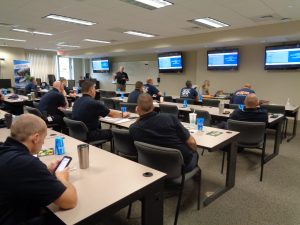
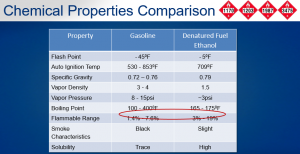
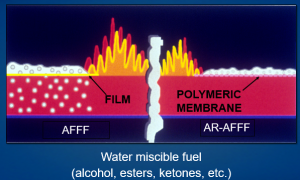
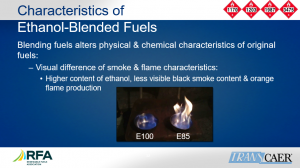

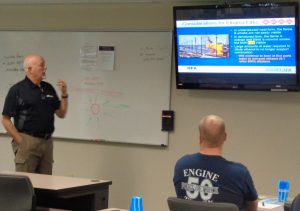
.jpg)





Comments are closed.